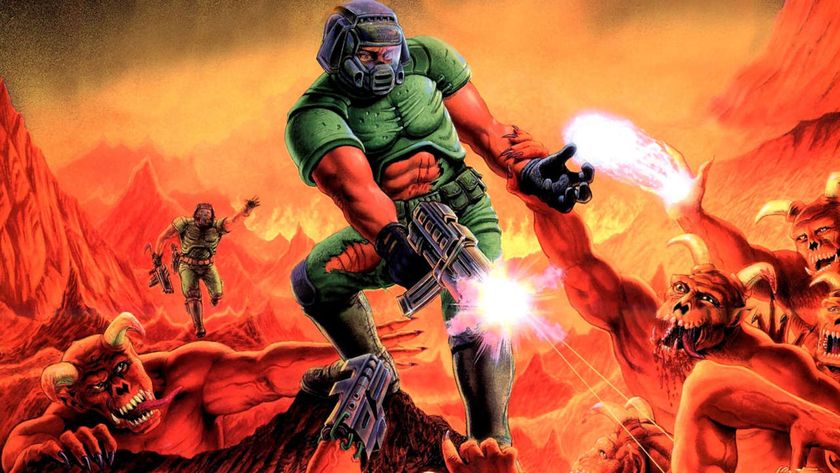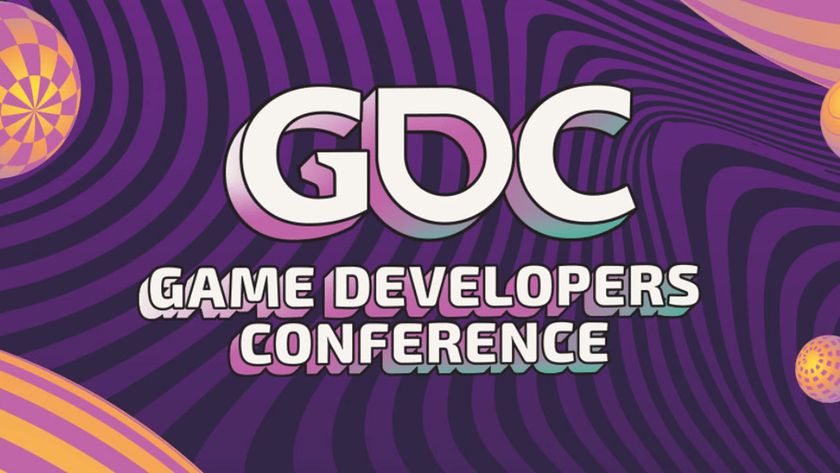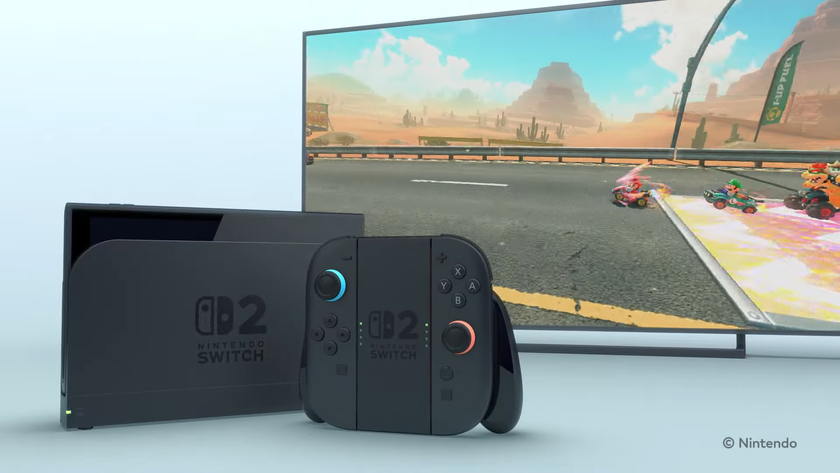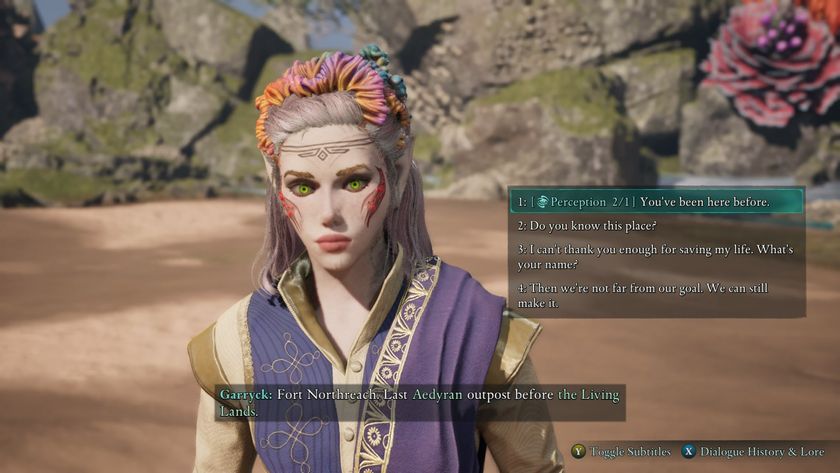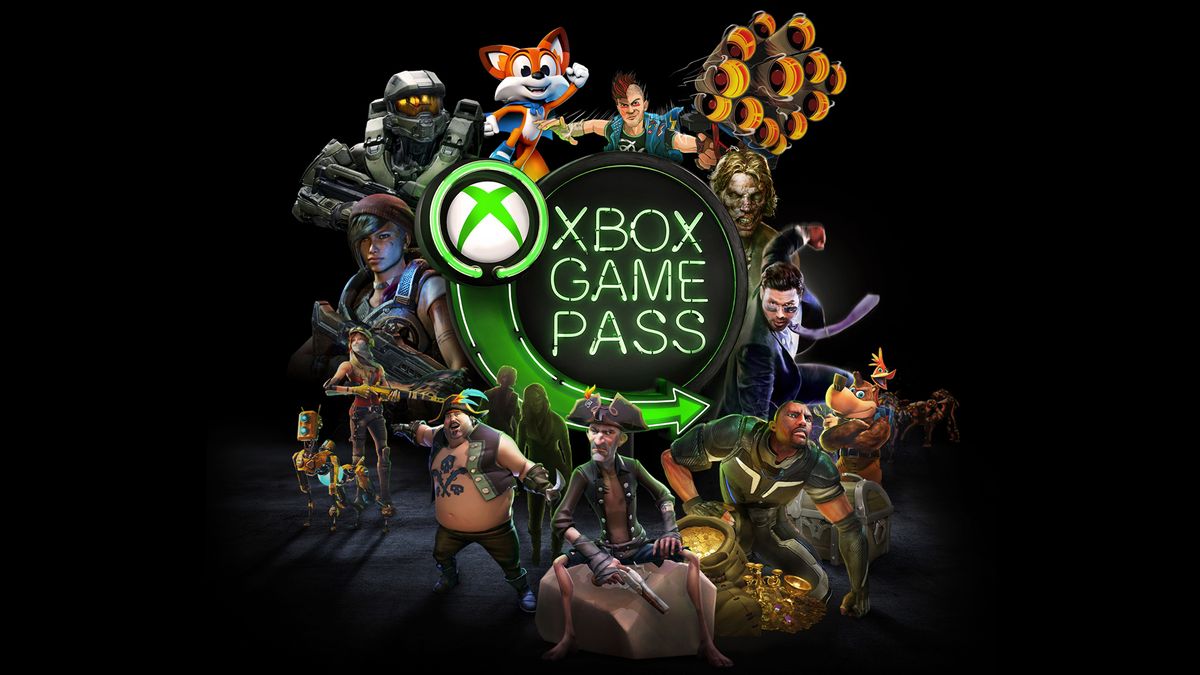
Ben Decker likes to tell this one story. Xbox's head of gaming services has a group of friends from Junior High that gets together to play new Gears of War games. Well, they try to. Despite doing this for more than a decade, there's always one hold out – Kumar – who doesn't buy into the war on Sera right away. The rest of Decker's Delta Squad then needs to spend time, precious time that could be spent sawing through Locust, hassling their buddy to purchase the game, to get online, and to party up and play. That is, until Xbox Game Pass carved out the friction. Because Gears 5 was available through the subscription service from day one, the full group was able to blast through it with little consternation, and, when they were done, they had an entire library of games that could keep them playing together.
This story has stayed remarkably consistent over the years. I've lost count of the number of times Decker has told it to me since Xbox Game Pass launched back in 2017, but as far as anecdotal evidence goes it's always been fairly convincing. The purpose of the story is to demonstrate that "we're playing more and we're connected more", and that groups of friends are coming into the platform for Xbox's marquee releases and sticking around to see if they can discover a new favorite – Minecraft, Sea of Thieves, maybe even an indie. To help prove it, Microsoft partnered with Opinium in December 2020 to conduct research and gather data from 14,000 gamers across Europe to explore how Xbox Game Pass is changing the ways that we play.
It's all about the games

"We have 23 studios across Xbox and Bethesda, working on Halo, Forza, Fallout, and new IP that we haven't even talked about yet that's gonna blow your mind"
Ben Decker, head of gaming services
"We're coming out with this research to explore how people are using Game Pass and how it is contributing to behaviours," says Decker, "and it really reinforces a lot of things that we've heard from our members." That's key here because Microsoft has maintained, from the beginning, that the service would be shaped by those that use it. Game Pass' functionality, availability, and catalogue is all being steered by players as Microsoft works to build a service that can sit at the centre of the Xbox ecosystem.
This research, Decker believes, justifies a lot of the decisions the gaming services division has made so far. "There are three big things that we hear from members that were reflected in the surveys. The first is that when we ask, 'what do you want out of Game Pass', the number one thing, as always, is 'games'; 'games, games, games!' And if you look at the research, nearly 60% say that one of the main reasons they are a Game Pass member is because of the variety of content."
As it exists today, Xbox Game Pass has over 100 games in its library, and even more for Xbox Game Pass Ultimate members – who are able to enjoy the benefits of EA Play, and play across two generations of Xbox, PC, and Android devices via Xbox Cloud Gaming. The research shows that players in the UK are particularly fond of action-adventure, sports and racing, and first-person shooters, while European players switch out FPS games for platformers. It's because of data like this that pushes Microsoft to make the changes to the library that it does. Introducing titles like MLB The Show to the platform for the first time. Ensuring that racing games like Dirt 5 are being introduced to Game Pass shortly after they launch. Bringing popular games like GTA 5 back into play. This is, of course, on top of the meaningful acquisitions its made in recent years to help expand Xbox's options and flexibility in areas it can't so easily serve through third-party partnerships alone.
"55% of those surveyed said a main reason that they joined is to get new games at release – that day one content. That's why we made the investments that we have. We have 23 studios across Xbox and Bethesda, working on Halo, Forza, Fallout, and new IP that we haven't even talked about yet that's gonna blow your mind. We can deliver all of that into Game Pass on day one," says Decker. The head of gaming services is also keen to stress that ease of access is still a big priority, even as the service expands in size and complexity, noting that Xbox Game Pass is "the games you want, with the people you want, on the devices you want".
The power of a shared library
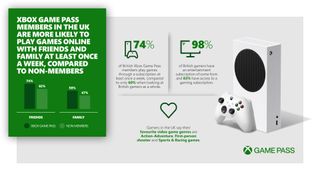
"As we continue to grow the catalogue, I think Xbox Game Pass is only going to become more of a central aspect of people's gaming lives"
Ben Decker, head of gaming services
The second piece of this is the power of a shared library, and it gets back to that story Decker likes to tell. If you look at the research conducted with 2000+ players in the UK alone (admittedly, a small pool of the over 18 million members Game Pass has worldwide), and the data shows that 62% of gamers in the UK play multiplayer games once a week, with that number increasing for Game Pass members – 12% more likely to play multiplayer games online, and interestingly, are more likely to play online with friends and family too.
Sign up to the 12DOVE Newsletter
Weekly digests, tales from the communities you love, and more
That, Decker says, has been particularly gratifying for the services team, particularly after 12 months of stay at home orders. "That shared library has really meant a lot to people, particularly in the last year-plus, and that showed up in the research as well. Game Pass members are about 20% more likely to play with friends and family once a week, and Ultimate members have three times the number of connections in the Xbox community that non-members do."
Decker's story about him and his friends moving on from Gears 5 to whatever co-op game is in season isn't hyperbolic, it's becoming reflective of the way people are, broadly, beginning to use the service. Anecdotally, GamesRadar's own Heather Wald recently wrote about how she has reconnected with her family in lockdown by returning to Age of Empires 2 on Xbox Game Pass for PC. I've managed to steer my friends away from Call of Duty: Warzone as tempers flare, meanwhile, by pulling them into everything from Sea of Thieves to Halo: The Master Chief Collection - something I'd never have been able to do without a shared library of games to choose between across Xbox One, Series X, PC, and Android devices. I ask Decker whether Microsoft is worried that this sort of engagement will fall once the world returns to some degree of normalcy, particularly as vaccination efforts ramp up in some of Xbox's biggest markets.
"You never know, right?" Decker begins. "If you'd have asked me a year and a half ago how things were going to play out, I couldn't have predicted it. It's always hard to say, but what I will say is that once people become members of Game Pass, they do discover how rewarding gaming can be with their family and with their friends. And how it can help them stay connected with people who are halfway across the country or halfway across the world. Once they discover that, I think they are going to continue to engage and continue to use Game Pass as a tool," he says. "I think players have discovered a lot of value here that I think is going to persist [...] as we continue to grow the catalogue, and as we grow that portfolio of first-party content. I think Xbox Game Pass is only going to become more of a central aspect of people's gaming lives."
Curation is key

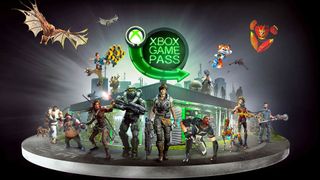
Looking for something new to play? Here are the best Xbox Game Pass games that you and your friends can play right now.
The idea that gaming subscription services are becoming a "more central aspect of people's gaming lives" is right there in the research. The surveys indicate that 98% of players in the UK currently access an entertainment subscription (covering movies, TV, or music) and that 83% of those surveyed have an active gaming subscription. Decker tells me that Opinium's data indicates that 60% of players in the UK play games via a subscription service once a week, although that number increases to 74% when you factor in Xbox Game Pass.
Another reason for this, Decker believes, is because of the discovery and curation aspect to Game Pass. Players are coming for the big, shared library of games, but staying because of the perceived quality across it. "People say they came for Minecraft, Halo, Gears, or for FIFA, but once people are in they want to discover new stuff. That's why curation is so important and why we have invested in recommendation algorithms in the way that we have," he says. "We see from our data that Xbox Game Pass members play 30% more genres, they play 40% more games, and 90% of members have told us that they play games they never would have played without Game Pass."
Decker says that this latest round of research "just reinforces" what Microsoft is trying to do with Xbox Game Pass and the service it is trying to provide. It doesn't want it to become an overwhelming hub of content, like so many argue Netflix or Spotify have become as popularity has skyrocketed, but rather a nexus point for friends, family, and new communities to engage with games and share in new experiences. "What's been really gratifying for us has been watching people get more out of their gaming time. I hesitate to wax a little poetic, but I will because I just think that video games are such an amazing art form and powerful medium – gaming is such an amazing vehicle for connection to anybody across the world."
"Game Pass has served as such a tremendous unlock for that. Whereas before, I think there was some friction – barriers to people getting in, preventing them from discovering and sharing. I've told you that story before, haven't I? My friends from Junior High getting together to play Gears of War, and it's always been a struggle to get everyone online on the same game and at the same time. Well it's just so easy now, right? Now we can just jump on and see what there is to play; we can try something totally new or go back and play games that we enjoyed almost 20 years ago," he says, adding, "Xbox Game Pass is all about discovery, and in unlocking that connection in the community."
The Xbox Series X launch window was defined by a lack of platform showcases, availability issues, and smart quality-of-life improvements. Here are our thoughts on the Xbox Series X, six months later.
About the research: Research carried out by Opinium in December 2020. Survey sample qualified as 14,000+ gamers (2,000 respondents surveyed in each country) aged 16-40 who play video games at least once a month in the United Kingdom, Spain, France, Italy, Sweden, Poland and Germany.

Josh West is the Editor-in-Chief of 12DOVE. He has over 15 years experience in online and print journalism, and holds a BA (Hons) in Journalism and Feature Writing. Prior to starting his current position, Josh has served as GR+'s Features Editor and Deputy Editor of games™ magazine, and has freelanced for numerous publications including 3D Artist, Edge magazine, iCreate, Metal Hammer, Play, Retro Gamer, and SFX. Additionally, he has appeared on the BBC and ITV to provide expert comment, written for Scholastic books, edited a book for Hachette, and worked as the Assistant Producer of the Future Games Show. In his spare time, Josh likes to play bass guitar and video games. Years ago, he was in a few movies and TV shows that you've definitely seen but will never be able to spot him in.


